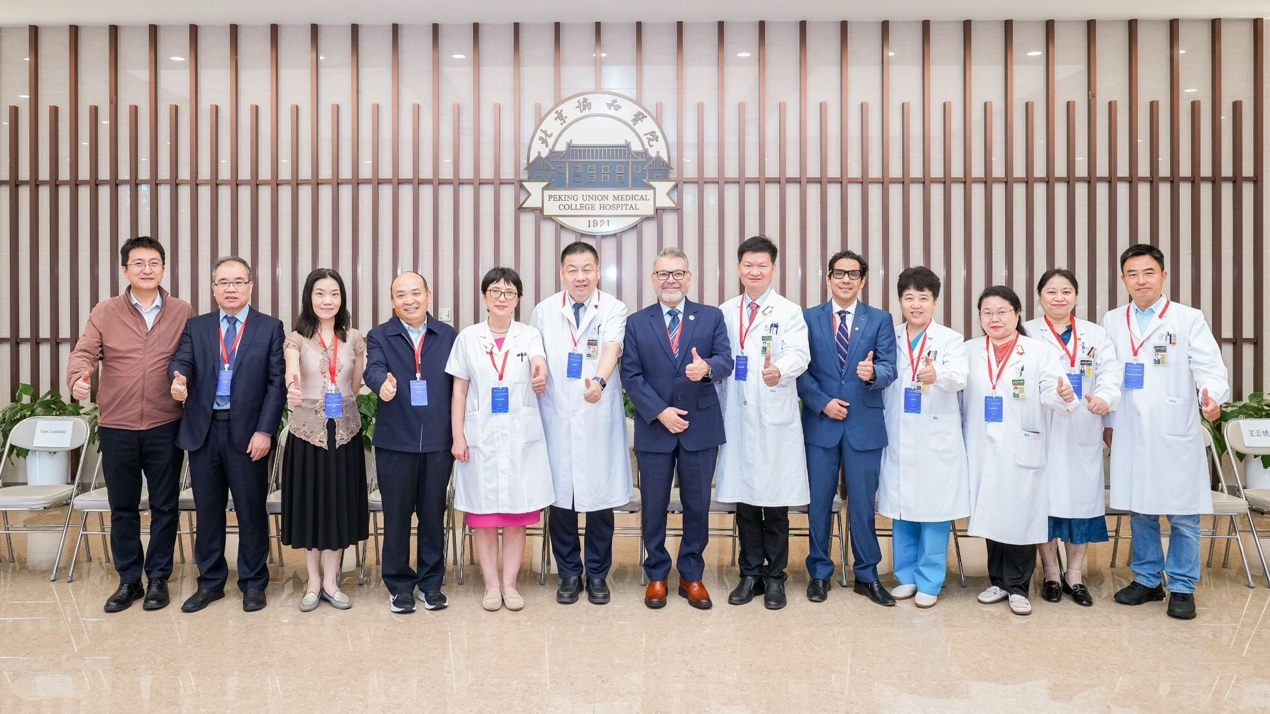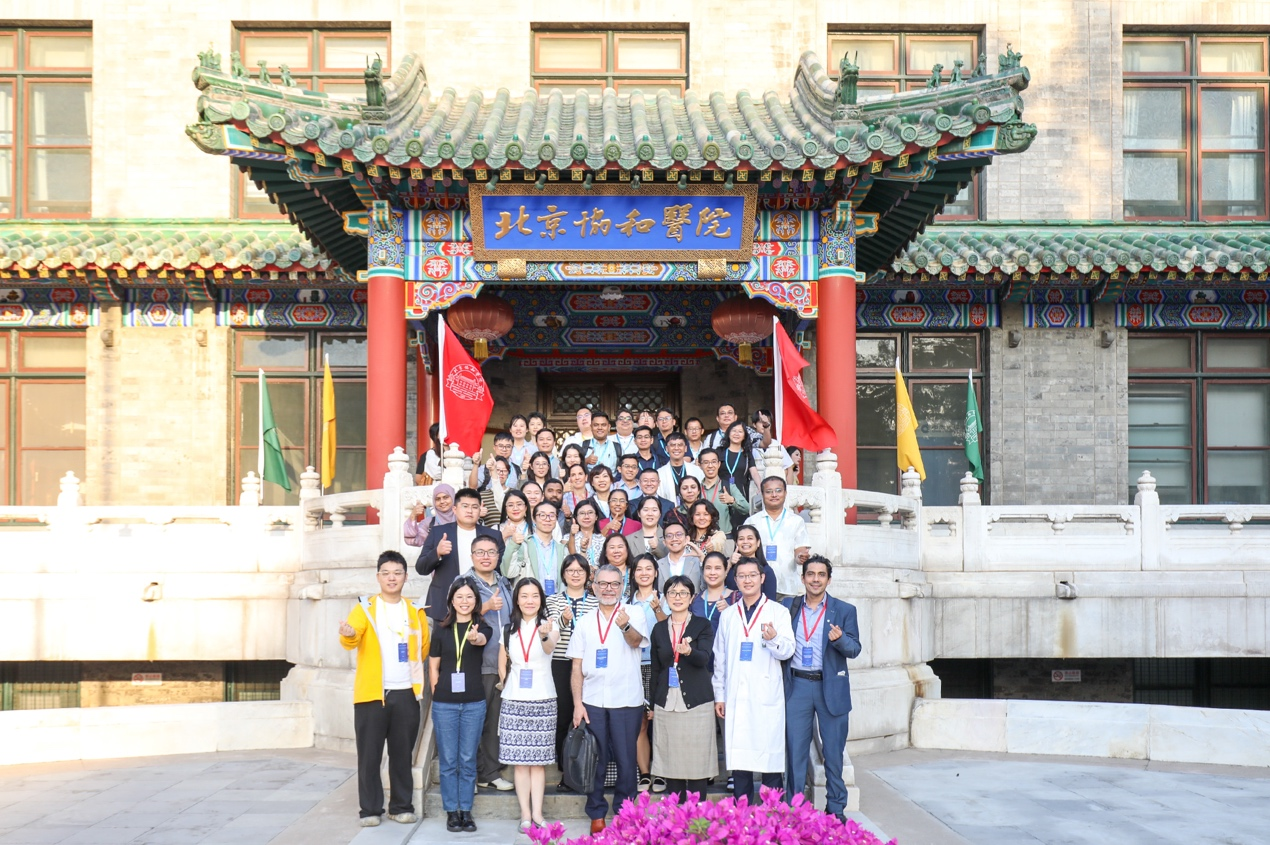On September 22, 2025, the International Atomic Energy Agency (IAEA) Project No. RAS6105 Regional Training Course on "theranostic applications of radioactive tracers for endocrine related cancers" was launched in Beijing, organized by the Department of Nuclear Medicine at PUMCH. Deploying diverse forms such as theoretical lectures, thematic discussions, and site visits, the training established a platform for international nuclear medicine exchange and collaboration, advancing the global development of radionuclide theranostics.

Vice President Du Bin outlined PUMCH's strong foundation and clinical excellence in nuclear medicine and emphasized the critical role of radioactive tracer-based theranostics in improving outcomes for patients with endocrine-related cancers. IAEA Technical Officer Enrique Estrada-Lobato presented the background and objectives of the training.
The opening ceremony was chaired by Lin Yansong, China's National Coordinator for Project No. RAS6105. The project is led by Lin Yansong and Zhu Zhaohui. The five-day training program brought together 28 medical professionals from 18 countries. The program directors included Huo Li, Director of the Department of Nuclear Medicine, PUMCH; Lin Yansong, Deputy Director and head of nuclear medicine of the PUMCH West Campus; Zhu Zhaohui, Deputy Director of the General Office of the Clinical Research Institute; and Yang Zhi, Director of the Department of Nuclear Medicine at Peking University Cancer Hospital.
The curriculum was structured around seven major themes focused on "integrated radionuclide theranostics". Distinguished experts were enlisted as lecturers from PUMCH's Department of Nuclear Medicine, the National Facility for Translational Medicine (PUMCH), Peking University Cancer Hospital's Department of Nuclear Medicine, Peking University's Department of Applied Chemistry, Peking University First Hospital's Department of Nuclear Medicine, the Suzhou Institute of Systems Medicine at the Chinese Academy of Medical Sciences, Nanjing First Hospital's Department of Nuclear Medicine, and Lawrence Livermore National Laboratory in the United States. They delivered lectures covering radiopharmaceutical principles and next-generation radiolabeled antibody technologies, clinical translation and drug development, PET technology evolution and advances in portable brain imaging devices, the role of nuclear medicine in radioiodine-refractory thyroid cancer management, radiogenomics, PD-L1 imaging, and alpha-emitter applications. Multiple experts shared practical insights through case presentations. Participants actively exchanged their country's practices and challenges during group discussions.

▲Group discussion
During the training, participants visited PUMCH's Department of Nuclear Medicine to observe in person PET/CT examination rooms and radiopharmaceutical preparation and imaging workflows. They also toured relevant facilities to examine drug development production lines and supply chain systems, exploring drug stability and cross-border supply pathways.
At the closing ceremony, Enrique Estrada-Lobato, representing the IAEA, expressed gratitude to PUMCH for organizing the program and encouraged participants to apply their acquired knowledge to clinical practice in their home countries, thereby elevating regional cancer management standards.
Lin Yansong noted that this training not only demonstrated PUMCH's professional excellence in nuclear medicine but also exemplified China's active role in global medical technology collaboration and radionuclide theranostic knowledge exchange. Moving forward, the hospital will continue to build on its academic strengths, promote international exchanges, and leverage Chinese expertise to enhance the health and well-being of cancer patients worldwide.

Written by Li Ruochen, Li Congxin and Dong Jingge
Pictures courtesy of Li Ruochen
Reviewed by Huo Li and Lin Yansong
Edited by Dong Jingge and Chen Xiao
